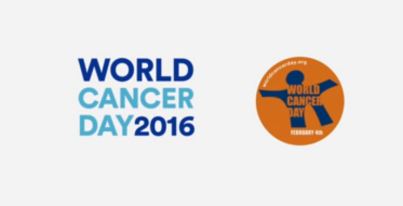31 January 2016 – 400 000 people, young and old, die every year in the WHO Eastern Mediterranean Region due to cancer. On World Cancer Day, 4 February, under the slogan “We Can. I Can.”, WHO is calling on governments to provide and improve access to quality cancer care and on communities and individuals to quit smoking, eat healthy food and keep active.
Cancer is one of the world’s biggest killers and ranks among the top 4 leading causes of death in the Region, yet is a preventable disease.
“Regrettably,” says Dr Ala Alwan, WHO Regional Director for the Eastern Mediterranean, “evidence shows that cancer rates continue to rise globally and regionally because of unhealthy lifestyles and limited access to treatment and quality cancer care”.
In the next 20 years, cancer rates in our Region are expected to almost double, from an estimated 555 318 new cases in 2012 to nearly 961 098 in 2030 – the highest relative increase among all WHO regions. “There is a pressing need to take action to reverse this trend,” says Dr Ala Alwan.
More than 30% of cancers can be prevented through the adoption of healthy lifestyles. Raising people’s awareness of the links between lifestyle and cancer will empower people to make healthy lifestyle choices, such as quitting smoking, keeping physically active and eating healthy food and can also reduce the cancer burden.
There are serious gaps in access to treatment and quality cancer care in many countries of this Region. “Health systems need to be strengthened by moving towards universal health coverage which means ensuring health care services to all people at affordable costs,” explains Dr Alwan.
Cancer is one of the main noncommunicable diseases that kill more than 2.2 million people in the Region every year. Cancer prevention and control are possible but require action on all fronts.
The regional framework for action, a road map for countries of the Region to implement the United Nations Political Declaration on Prevention and Control of Noncommunicable Diseases, is central to accelerating action on cancer prevention and control. It sets out some of the strategic milestones that countries need to reach if they are to achieve the 9 voluntary targets to reduce the number of premature deaths from noncommunicable diseases by 25% by 2025. The targets address risk behaviours, such as tobacco use, harmful use of alcohol, unhealthy diet and physical inactivity.
This World Cancer Day:
- Governments can provide and improve access to early detection and timely treatment, as well as develop and effect policies that promote and normalize healthy eating and living.
- Civil society groups, including nongovernmental organizations and the media, can work with individuals and communities to educate and diffuse key messages on signs and symptoms, the importance of early detection, as well as the impact of adopting healthy behaviours.
- Individuals and families can adopt healthier behaviours, share experiences, as well as ask for support and support others.
On World Cancer Day and beyond, everyone can inspire, take action and make change. Everyone can play a role in reducing the burden of cancer.
Related links
2016 World Cancer Day video: I can. We can.
For more information, please contact:
Ms Nisreen Abdel Latif
Communications Officer for the Department of Noncommunicable Diseases and Mental Health
Tel: +202 227 65072/670
email:
website: www.emro.who.int/ncds



